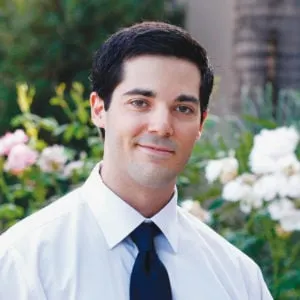In brief
- Michael Ackerman was charged in February with stealing millions from over 100 investors.
- Ackerman allegedly touted the effectiveness of his proprietary crypto trading algorithm, which authorities say generated minimal returns.
- Investors say his partners should also be held accountable for their losses.
Another alleged crypto trading scam is in the books. This one involves a stock trader, a financial advisor, a surgeon, and an enterprise called Q3 I LP.
Michael Ackerman, a former broker with the New York Stock Exchange (NYSE), was charged in February with stealing substantial funds from the more than $33 million raised from over 100 investors. Now, aggrieved investors have formed a legal representing body known as the Q3 Investment Recovery Vehicle to hold him and his alleged partners, former Wells Fargo Advisors employee James Seijas and Florida surgeon Quan Tran, financially accountable for their losses.
Q3 allegedly lured investors into the scam with the promise of a high-returns trading algorithm via Facebook groups such as the Physician Dads’ Group. Ackerman was the alleged developer of an investment algorithm that lured investors to the group; he claimed to have used it in the past to trade stocks, but that it was just as successful when used for trading crypto.
According to a Securities and Exchange Commission (SEC) complaint from February, however, “Ackerman invested no more than $10 million of the $33 milion raised from investors in cryptocurrencies and the profits generated by the Algorithm were minimal, at best.”
Instead, Ackerman allegedly purchased five properties between 2018 and 2019 with investors’ money, including a 150+ acre plot in Montana and a $3 million beach house in Florida. He also allegedly spent funds on new cars and jewelry.
The SEC further stated that the company—which at the time, was operating under the name Q3 Holdings LLC—had charged its customers licensing fees to give them access to Ackerman’s trading algorithm. This resulted in another $4 million in payments, but the SEC says he failed to notify their limited partners of these payments. Moreover, Ackerman allegedly falsified account information to show 15% returns.
These and other financial discrepancies were initially discovered by Tran and Seijas late last year, according to an unsealed affidavit filed by Homeland Security Investigations’ special agent John Rodriguez. Upon visiting Ackerman in Ohio following a hospital stay, Tran and Seijas apparently gained access to his computer and discovered what Tran referred to as a big difference between the assets that Ackerman “had been reporting to us and the balance in the trading account.”
Upon confronting Ackerman about what appeared to be missing money, Ackerman allegedly told Tran and Seijas that he had moved it to a more secure trading account but refused to tell them anything more. Tran later notified the SEC about the situation, and federal prosecutors have charged Ackerman with wire fraud and money laundering.
While Tran and Seijas are not facing criminal charges, the Recovery Group is attempting to hold them accountable for their purported lack of judgement regarding Ackerman’s dealings. Both are alleged to have simply passed along whatever documents Ackerman manufactured to limited partners without question.
Furthermore, the company did not have a fund administrator like most other hedge funds, and both men allegedly forwarded screenshots from Ackerman’s cellphone as performance updates to limited partners—a strange way to roll considering Seijas has a background in finance.

